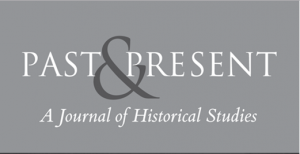by the Past & Present editorial team
Dr. Shamima Akhtar (IHR, London) was interviewed about her work as the Royal Historical Society’s Race, Ethnicity, and Equality in History Fellow, by The Guardian.
Interviewed for an article entitled “‘I’m used to being the only brown person in the room’: why the humanities have a diversity problem” Akhtar reflected that:
“[‘She’s used to being the only brown person in the room,’ [says Akhtar] a post-doctoral fellow working with the Royal Historical Society, whose race, ethnicity and equality report found history is one of the least diverse subjects in the UK – black historians make up less than 1% of university history staff.
Akhtar believes the problem in her subject starts in schools, where the history taught is predominantly white and Eurocentric, and is the start of an enduring and implicit bias against history from the perspective of those who are not white.
‘If students never see anyone who looks like them in textbooks, they’ll think the subject’s not for them. They won’t feel welcome. By the time students graduate from a history degree, they may have studied Nazi Germany three or four times,’ she says.”
The article in which her comments appear was written by Helena Pozniak and published on Monday 27th January 2020. It can be read in full here.
Akhtar’s work in the sphere, to facilitate the adoption and implementation of the Royal History Society’s 2018 report on Race and Equality in [UK] History” is being supported by the Past & Present Society. Her Fellowship runs between July 2019 and July 2021.

